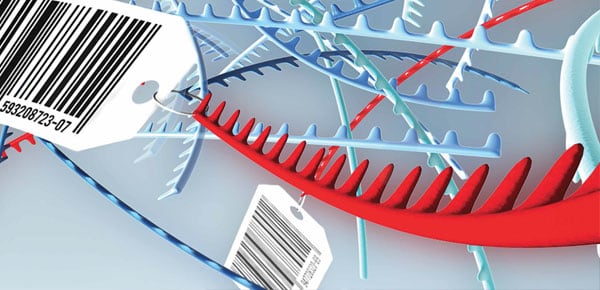


















We’re just days away from heading to the annual meeting of the American Society of Human Genetics (ASHG) in Orlando, and we’re looking forward to checking in with customers and partners while at the show. Look for us at booth #745, where we’ll be exhibiting our sample-to-insight solutions. And while you’re perusing the posters, don’t miss the ones listed below — we think they’re particularly interesting.
(Bioinformatics and Computational Approaches)
Wednesday, Oct. 18 from 2.00 p.m. – 3.00 p.m.
Presenter: Bjarni Vilhjalmsson
To improve detection of low-frequency variants in cancer, QIAGEN scientists created a sample to insight solution using QIAseq targeted panels to incorporate unique molecular identifiers for NGS, followed by data analysis with the Biomedical Genomics Workbench software. Applying this innovative workflow to several data sets, the team significantly increased sequencing quality and achieved more accurate estimates of variant frequency.
(Epigenetics and Gene Regulation)
Wednesday, Oct. 18 from 3.00 p.m. – 4.00 p.m.
Presenter: Bethan Hussey
The first of two posters about epigenetic studies at Loughborough University in the United Kingdom, which examined the influence of exercise in altering DNA methylation and gene expression linked to inflammatory conditions. Using QIAGEN’s EpiTect LyseAll kits and Pyromark Q48 Autoprep assays, the scientists found significant changes in methylation of two genes post-exercise.
(Mendelian Phenotypes)
Wednesday, Oct. 18 from 3.00 – 4.00 p.m.
Presenter: Andreas Rump
Using NGS to investigate causes of delayed development in children, researchers at the University of Technology Dresden and University Clinic Leipzig in Germany relied on QIAGEN’s Biomedical Genomics Workbench software for variant calling, a critical step in interpreting genetic findings.
(Bioinformatics and Computational Approaches)
Thursday, Oct. 19 from 2.00 p.m. – 3.00 p.m.
Presenter: Tejaswi Koganti
Researchers at the Mayo Clinic in Rochester, Minn., tested CLC software for variant calling of small genetic variations known as indels. The study found QIAGEN’s CLC bioinformatics tools coupled with NGS delivered 95% accuracy in identifying insertions of fewer than 30 base pairs and deletions of fewer than 27 base pairs.
(Cancer Genetics)
Thursday, Oct. 19 from 3.00 p.m. – 4.00 p.m.
Presenter: Kambiz Karimi
Counsyl, a clinical laboratory in South San Francisco, Calif., compared QIAGEN Clinical Insight (QCI) software for interpretation of NGS results from 1,900 variants in hereditary cancer and other diseases to manual interpretation by PhD scientists and genetic counselors. The study found QCI’s coverage of variants was comprehensive and concordant with the lab’s own analysis. According to the poster, QCI facilitated significant time savings, freeing up lab staff time for difficult cases.
(Epigenetics and Gene Regulation)
Thursday, Oct. 19 from 3.00 p.m. – 4.00 p.m.
Presenter: David John Hunter
The second poster about epigenetic studies at Loughborough University in the United Kingdom, about the effects of exercise on DNA methylation and gene expression.
We hope to see you at the show!